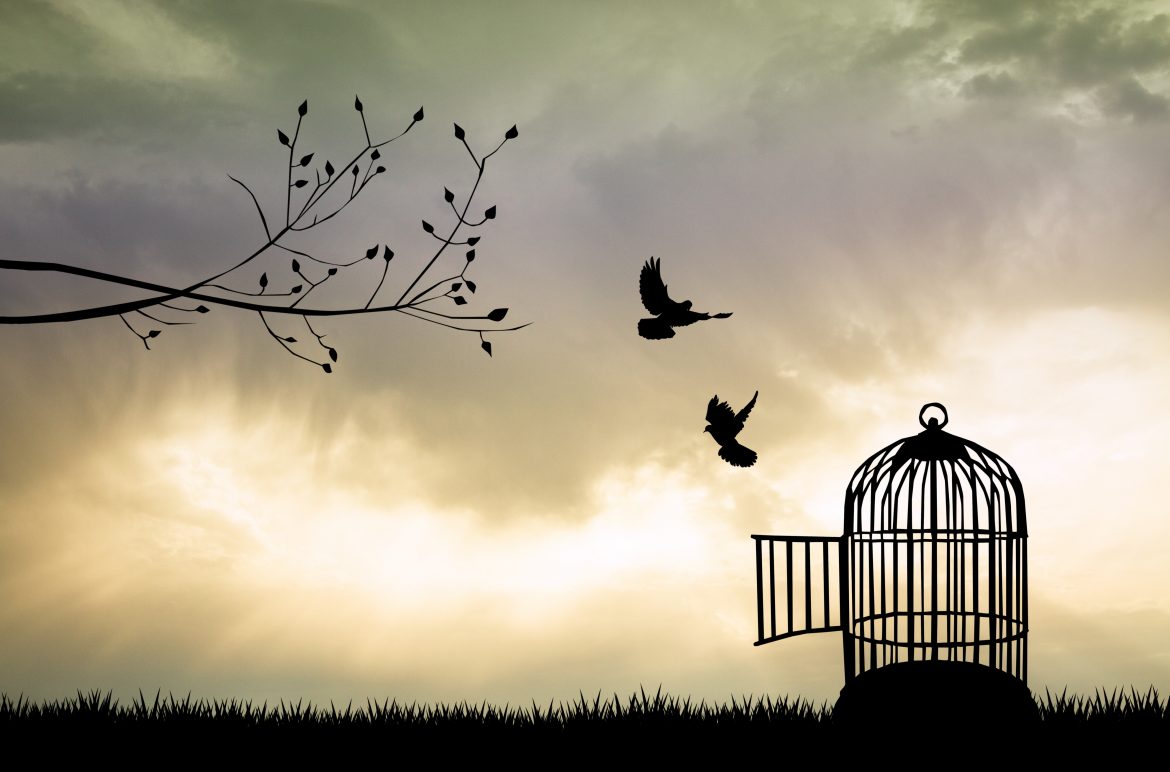Christians generally have some pretty specific (and generally inaccurate) ideas of what it means to say I’m an atheist. The idea of agnosticism and atheism not being contradictory is still a controversial one, but I find the that “I don’t know” complements rather than contradicts “I don’t believe.” So with that in mind, here’s my position:
Atheism does not mean I’m a scientist. I am not an expert on biology, chemistry, cosmology, geology, physics or anything else that people care to invoke as proof that their god is real. I am a science enthusiast, meaning that scientific discoveries fascinate me and I try to keep abreast of current trends and discoveries made by the scientific community but that doesn’t make me a scientist. I am at best a layman on scientific matters and am necessarily limited in my understanding. I don’t have the answers to every question in the universe, but I do understand one thing about human knowledge: the fewer assumptions we hold as default the less likely we are to mislead ourselves about what we know. Consequently, if you demand to know what started the universe or how life arose from nonliving matter the only answer I can give is “I don’t know.” “God did it” is not the automatic default just because that’s the traditional answer from religion, it still must be validated as true before it can be accepted. It will be held to the same standards of evidence as any other claim, and if it can’t meet that standard I will not accept excuses for why that standard should not apply.
Atheism does not mean I’m a philosopher. In truth I’m less impressed by philosophy than I probably should be, but I’ve seen some really bad rationalizations trying to justify belief without looking like they’re justifying belief. The near-universal admiration of Thomas Aquinas’ Five Ways springs immediately to mind. The thing is that religion isn’t philosophy, and belief in gods isn’t founded in rational thought. It’s not taught through rational discourse but an emotional one. People don’t wait for their children to learn critical thinking skills before they drill religious beliefs into their heads, and for a very good reason. They’re teaching their children to accept religious teachings as a default assumption before they can examine the validity of those assumptions, and most children live their lives without ever considering why they should question them. You can’t tell me this isn’t deliberate. So I don’t need to be a philosopher to be an atheist and I don’t pretend to be one.
Atheism doesn’t mean I’m automatically a better person. Atheism isn’t a magic spell that makes me smarter, stronger, faster, more moral or ethical than someone who believes in a god. Atheism challenges me to reconsider questions that I used to consider sufficiently answered by religion such as science, morality and ethics but that doesn’t guarantee I’m going to do a good job with it. I am still the same person I was when I was standing behind the podium leading the church congregation in singing religious hymns, I just no longer believe what religions claim about reality and I don’t participate in church any longer. Nor have I become a thieving, raping, murdering monster because I no longer fear divine retribution because my morality is not and never was based on fear. My morality has always been based on doing what I understand to be right, not about avoiding punishment.
Atheism doesn’t mean I know there are no gods. I suspect there aren’t, because religious claims about gods and reality don’t stand up to scrutiny. The more excuses you have to make for why reality doesn’t work the way you insist it should, the less inclined I am to believe you know what you’re talking about. Arguing for a prime mover or appealing to consequences doesn’t convince me either. I’m intellectually honest enough to say that I don’t have concrete knowledge that there are no gods the way I know there’s no money in my wallet, but not being able to prove there are no gods isn’t enough for me to believe that there are. Wanting to believe there are gods is no more useful than wanting there to be money in my wallet. It’s still a claim that requires validation, not a default assumption.
Atheism doesn’t mean I worship the devil. I shouldn’t even have to say this, but it’s still a popular thing to say. If I don’t believe in your god, why would I take your devil seriously?
Atheists can be liberal or conservative, intelligent or ignorant, friendly or hostile, moral or immoral. We can be good people or bad people just like everyone else. When you learn that someone is an atheist, the only thing you can safely assume from this is that they don’t believe in any gods. If you want to know why they don’t believe, what kind of person they are and what they know (or think they know) you’ll have to dig a little deeper and ask them. Nothing else is implied from atheism but that one thing.
For me there’s no problem with tying agnosticism to atheism. Agnostic comes from the Greek word agnostos, which means unknowable. One of the core concepts to most atheists is that there’s no way to prove or disprove the existence of a deity. Basically, most atheists agree that it’s unknowable, which makes them all agnostic.
It’s been a long time since I’ve read Dawkins… but I’m pretty sure it was in the God Delusion where he took some time to hash out the ideas of “agnostic atheists” and “atheist agnostics.” There are those who don’t mind the idea of a god and those who do. But the unifying truth for them both is that they acknowledge you can never be sure. It is unknowable.
Atheism is a spectrum like everything else in life. The difference between Agnostic and Atheist is really whether you believe in your heart that there might be a god or not. We all have a different place where we land on that line, but when it comes down to it, we’re all agnostic at heart. We have all rejected religion (at least for ourselves).
Although, that brings up another spectrum, which leads to some fun thought processes. Dawkins was a big supporter of gathering for mass. He saw great benefit in bringing the community together and practicing rituals that bonded and unified people. He also loved religious hymns (which are just music written by some of the greatest composers of their time).
I think websites like this where we all gather together to try and connect and correspond with each other show our need for that sort of thing. And some atheist communities have started regular gatherings to offer the same sort of “spiritual” connections that religion offers.
One more interesting thought I had while reading your post is that being an atheist doesn’t mean you’re automatically more ethical or not… While this is true, it still does come down to a bit of a percentage game again. Some of the best people I know are religious. But the number of times I’ve had someone question what stops me from doing evil without a god to punish me is severely concerning. It’s truly a terrifying thought that the only thing keeping some people from killing, raping and pillaging, is the fragile thought that some invisible power might punish them for it.
Although, that brings up another spectrum, which leads to some fun thought processes. Dawkins was a big supporter of gathering for mass. He saw great benefit in bringing the community together and practicing rituals that bonded and unified people. He also loved religious hymns (which are just music written by some of the greatest composers of their time).
That reminds me of Alain de Botton’s abortive attempt at “Atheism 2.0” wherein he tried to establish “atheist churches.” This is a point where I disagree with both Dawkins and de Botton. While humans need community, I’m downright anti-theist when it comes to religion. I don’t think we need other humans telling us what to think or believe. Copying the forms of ritual isn’t the healthiest thing for us. We can find the “spiritual” fulfillment from community without engaging in rote and recitation. Let people perform their rituals in private. Once you put someone in charge, they start finding ways to turn those rituals into power for themselves.
But the number of times I’ve had someone question what stops me from doing evil without a god to punish me is severely concerning. It’s truly a terrifying thought that the only thing keeping some people from killing, raping and pillaging, is the fragile thought that some invisible power might punish them for it.
Morality is, quite simply, an evolutionary tactic. I think Penn Jillette still has the best take on this.
The question I get asked by religious people all the time is, without God, what’s to stop me from raping all I want? And my answer is: I do rape all I want. And the amount I want is zero. And I do murder all I want, and the amount I want is zero. The fact that these people think that if they didn’t have this person watching over them that they would go on killing, raping rampages is the most self-damning thing I can imagine. I don’t want to do that. Right now, without any god, I don’t want to jump across this table and strangle you. I have no desire to strangle you. I have no desire to flip you over and rape you. You know what I mean?
I want to do one of those point by point comments on this (all “yes and”), but for now I will leave this, the first time I realized it’s okay to say: Yes, I believe there is no God. Especially your God.
I don’t call myself atheist, even though I am. I’d like a word for what I am. What do you call it when I don’t believe that being Christian makes you/me automatically a good/better person?
What do you call it when I don’t believe that being Christian makes you/me automatically a good/better person?
Sane? If you’re a former Christian like me, then we’re apostates or ex-Christians. The idea that you can only be moral or ethical if you’re a Christian is, frankly, supremacist. Even Jesus taught that outsiders can be better people than members of the in-group (see: the parable of the Good Samaritan). They just can’t go to Heaven under his rules.



